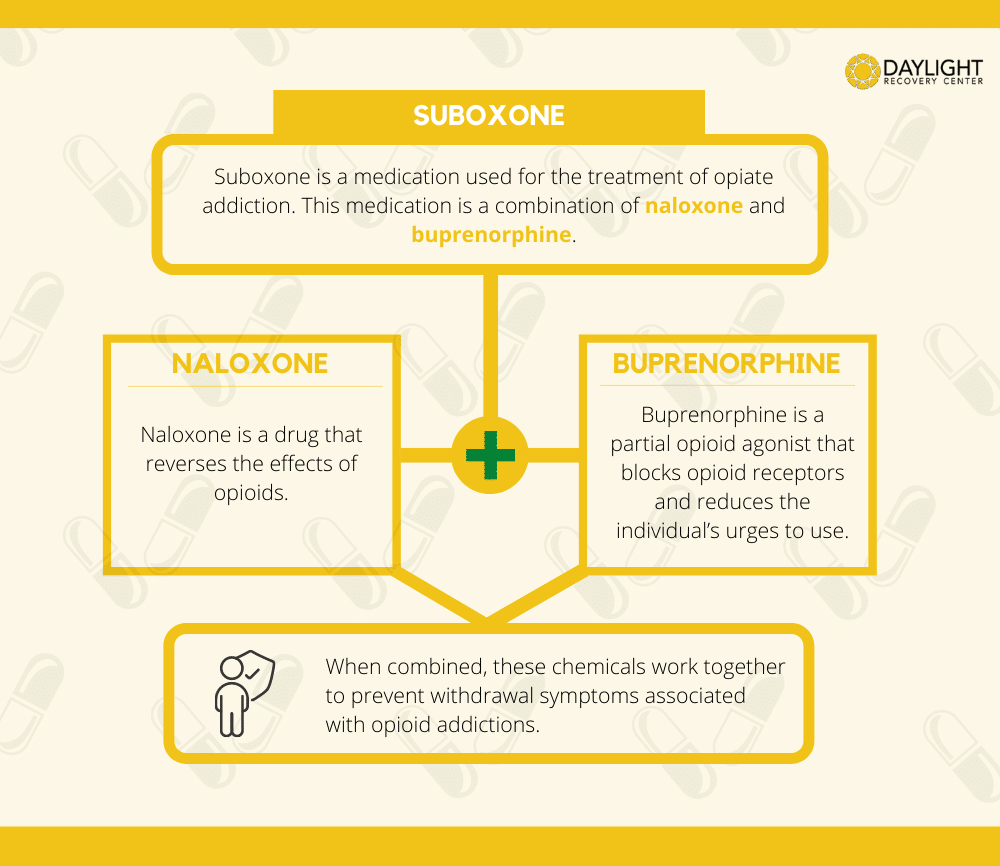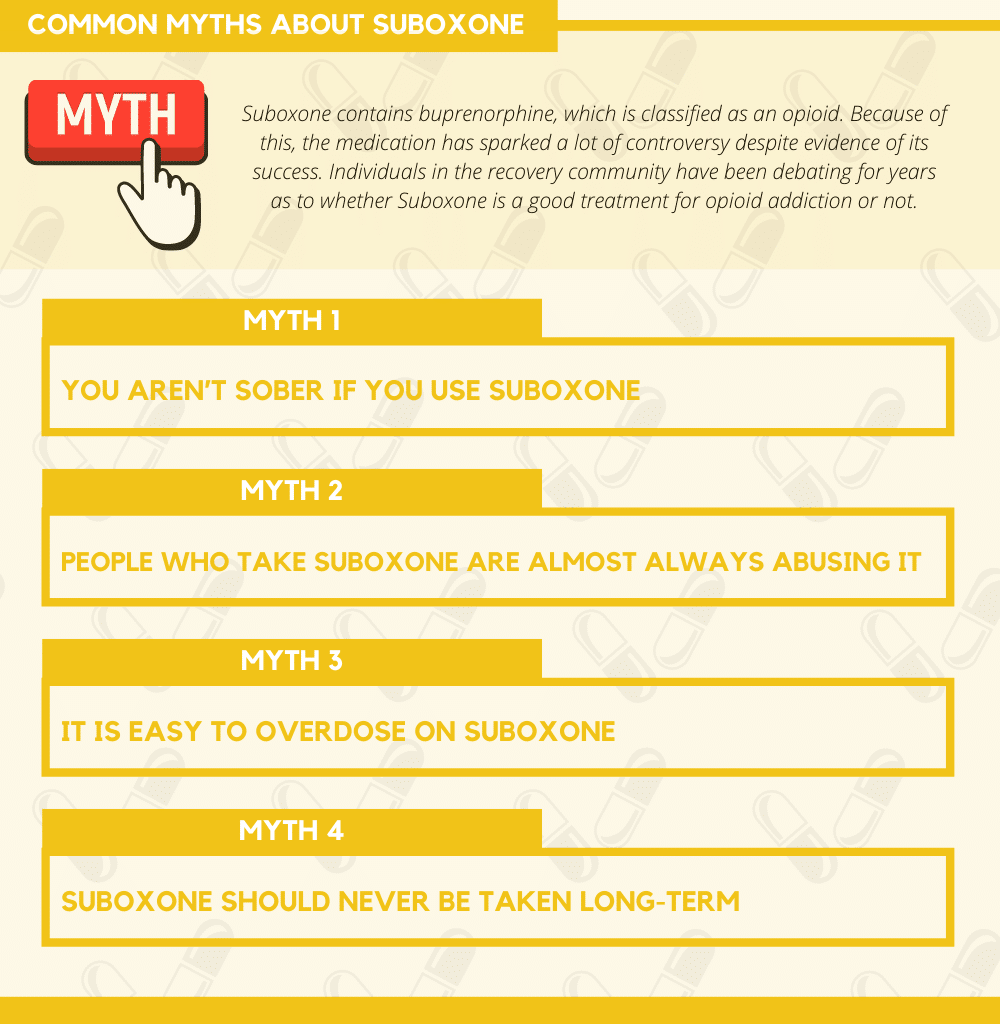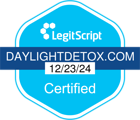Medication-assisted treatment (MAT) is a form of addiction treatment that involves the use of medications that soothe the effects of withdrawal symptoms or prevent the individual from experiencing the effects of their drug of choice. This type of treatment is accomplished with a variety of medications. However, the most known medication for MAT is called Suboxone. Suboxone is a medication that decreases the severity of withdrawal symptoms and helps to decrease a patient’s dependence upon a drug over time.
Suboxone is very well known as it has become a favored treatment option among many rehab programs. Unfortunately, many people misunderstand this medication, causing controversy. Because of this, there are plenty of myths circulating in the recovery community in regards to Suboxone. This can cause people to shy away from utilizing a treatment method that saves lives. While there are some risks to using Suboxone, with proper guidance and education this medication is safe and beneficial for many people.
Let’s take a look at the top 4 myths about Suboxone.
What is Suboxone?

Suboxone is a medication used for the treatment of opiate addiction. This medication is a combination of naloxone and buprenorphine. Naloxone is a drug that reverses the effects of opioids. The second ingredient, buprenorphine, is a partial opioid agonist that blocks opioid receptors and reduces the individual’s urges to use. When combined, these chemicals work together to prevent withdrawal symptoms associated with opioid addictions.[1]
Most patients use Suboxone at the beginning of their treatment, continuing the use of this medication into recovery. However, each individual will require Suboxone for a different amount of time. The patient’s doctors and addiction counselors work together to create a personalized suboxone treatment plan on a case-by-case basis. This helps to ensure that each individual will be treated with Suboxone safely and effectively.
While Suboxone is very effective in soothing symptoms of withdrawal, it is only meant to allow the individual the ability to continue with other forms of addiction treatment. It is recommended that individuals utilize addiction counseling to get to the root of their addictions and recover from any underlying issues.
Now that we understand what Suboxone is, let’s take a look at the misconceptions associated with the medication.
Common Myths About Suboxone

Suboxone contains buprenorphine, which is classified as an opioid. Because of this, the medication has sparked a lot of controversy despite evidence of its success. Individuals in the recovery community have been debating for years as to whether Suboxone is a good treatment for opioid addiction or not. According to research, the use of MAT medications such as Suboxone increases an individual’s likelihood of long-term recovery.[2]
Continue reading to learn the myths about Suboxone and exactly why they are not fact, but misguided opinions.
Myth #1: “You aren’t sober if you use Suboxone”
One of the most common myths about suboxone is that if an individual uses the medication, they aren’t truly sober. This line of thinking originates from the fact that Suboxone does contain an opioid.
However, this all depends on how you view your recovery and sobriety. The abstinence-based model of recovery is becoming less popular as addiction is beginning to be accepted as a medical condition. In the same way that individuals with cancer take medication to soothe their symptoms, some recovering addicts take Suboxone.
If an individual is using Suboxone to prevent themselves from abusing opioids, they are using the medication to stay sober. Therefore, killing the argument of “not being sober” if you use Suboxone.
Myth #2: “People who take Suboxone are almost always abusing it”
Unfortunately, Suboxone, like any medication, may be abused. Because it contains an opioid, it is possible to abuse the medication. However, it is only a partial agonist of the main opioid receptor in the brain. As a result, Suboxone does not cause the same kind of euphoria or “high” associated with oxycodone, heroin, or fentanyl.
Most people who take Suboxone are using the medication to get themselves off of drugs like heroin.
Myth #3: “It is easy to overdose on Suboxone”
While individuals may believe that Suboxone is easy to overdose on, this simply is not the case. When taken alone, Suboxone is very difficult to overdose on. This is because, as previously stated, Suboxone is only a partial opioid agonist, preventing it from fully binding to opioid receptors in the brain. Even if an individual took too much of their Suboxone, there is a “ceiling effect” that prevents an excess of receptor activation, causing the effects of the medication to plateau.
People can overdose on Suboxone if the medication is taken in combination with other drugs, such as benzodiazepines.[3] However, this makes Suboxone no different from any other medication. Mixing any prescription medications without a doctor’s approval can lead to overdose.
Myth #4: “Suboxone should never be taken long-term”
Everyone who is recovering from an addiction will require different treatment plans, modalities, and lengths of treatment. To say that Suboxone should never be taken long-term would be evidently wrong. While some individuals can stay sober after only a month of Suboxone treatment, others will relapse because they were not ready to come off of their medication just yet. In fact, some individuals need 6 months or even a year of suboxone treatment until they are ready to taper off.
Using Suboxone to Treat Opioid Addiction
Suboxone treatment is intended to be used in conjunction with therapy, group counseling, and self-help groups. This medication is intended to treat the physical aspects of one’s opioid addiction, allowing the individual to focus on healing from the mental aspects. Since this is such a helpful medication, the long list of myths about Suboxone can be harmful.
If you or a loved one are struggling to get and stay sober, Suboxone treatment in West Palm Beach may be right for you. Contact Daylight Recovery Center today to learn more about medication-assisted treatment, Suboxone, and what we can do to help.
References:



